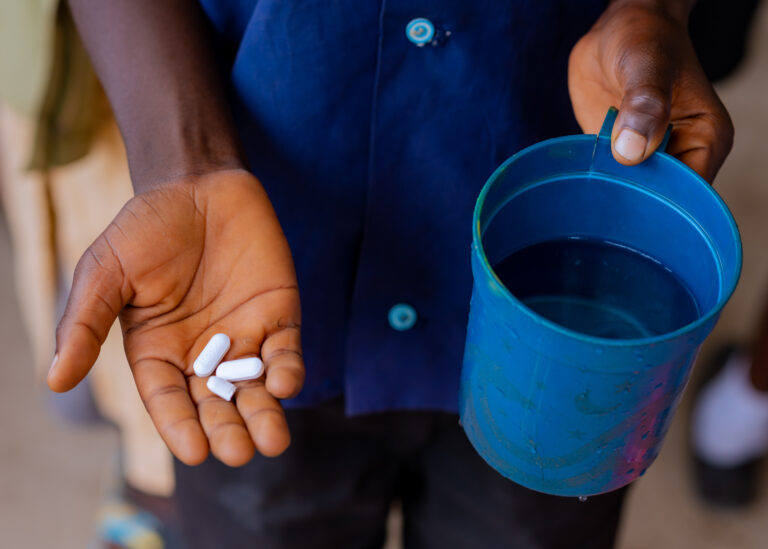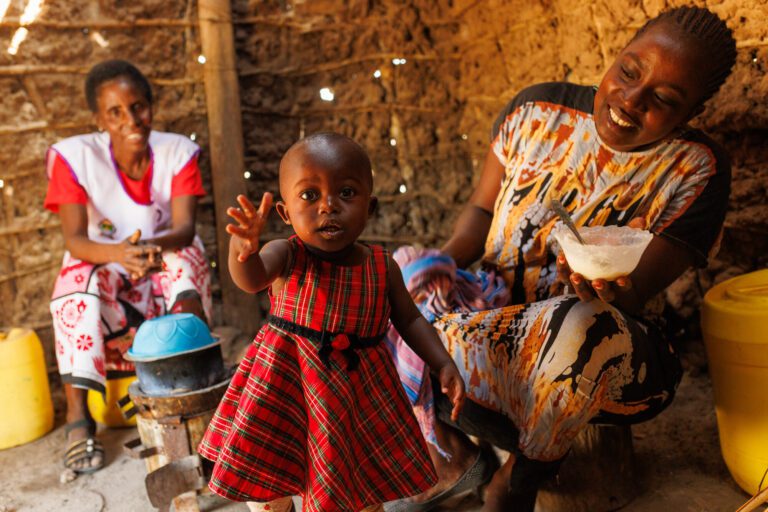Empowering Mothers: Transforming Nutrition in Rural Communities in Sierra Leone
In rural communities across Sierra Leone, limited access to nutritious and diverse food has been a constant concern. 33-year-old Mariama Koroma knows this reality all too well.
A farmer and single mother of three children, Mariama lives in Rogbere village in Tonkolili, Sierra Leone’s northern province. Like many other mothers in her community, she has been struggling to provide her family with nutritious food due to lack of resources. So, when Mariama first learned about Helen Keller Intl’s nutrition-sensitive agriculture work, it was a game-changer. It allowed her to transform the lives of her family and others around her.
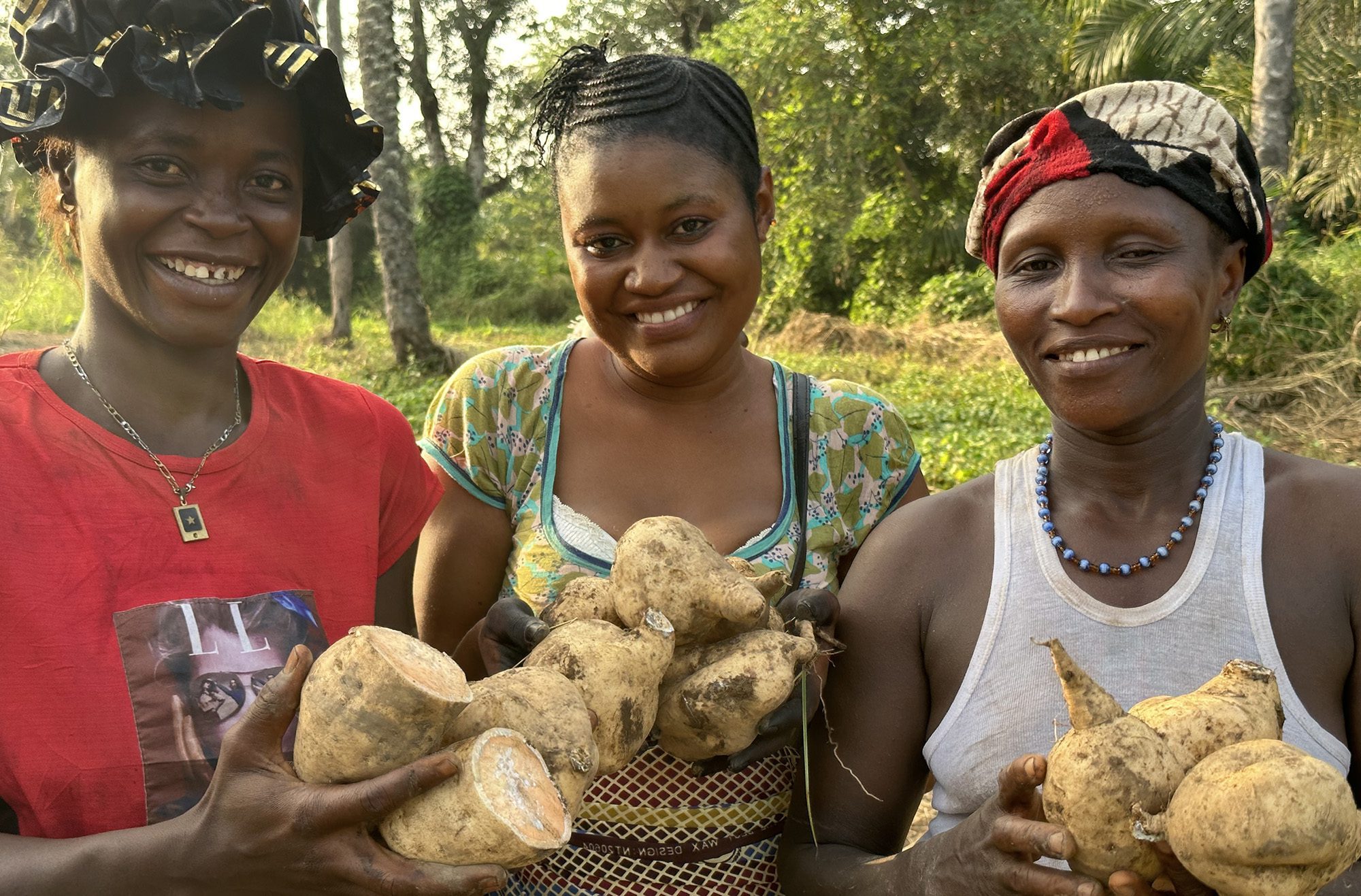
Improving Farming Practices and Rural Nutrition
Mariama’s community recently partnered with Helen Keller to improve their farming practices. Adding orange-fleshed sweet potatoes provided an instant nutrition boost to their harvest.
“Mariama and her family mostly relied on staple crops, such as cassava, [white-fleshed] sweet potato, and plantain, which were not as nutritious as the orange-fleshed sweet potatoes, especially in terms of Vitamin A and other essential micro-nutrients,” says Sugandh Juneja, Helen Keller’s Country Director in Sierra Leone.
The potato is changing the way we eat in our home. We are now able to eat better and more nutritious meals, and best of all, my children are becoming healthier and stronger.
Mariama
Vitamin A is essential for proper eyesight and a healthy immune system, improving overall health, especially for children under the age of five. It’s amazing how such a small change can have such a big impact on rural nutrition. This is why Helen Keller is working to improve orange-fleshed sweet potato farming in 10 out of the 16 districts in Sierra Leone.
With support from Helen Keller, Mariama was able to add this highly nutritious crop to her farming practices, and the results exceeded her expectations. “Our farm yields have increased significantly since we started cultivating the orange-fleshed sweet potatoes. We never thought it could be this easy to grow and such a profitable crop,” Mariama said.
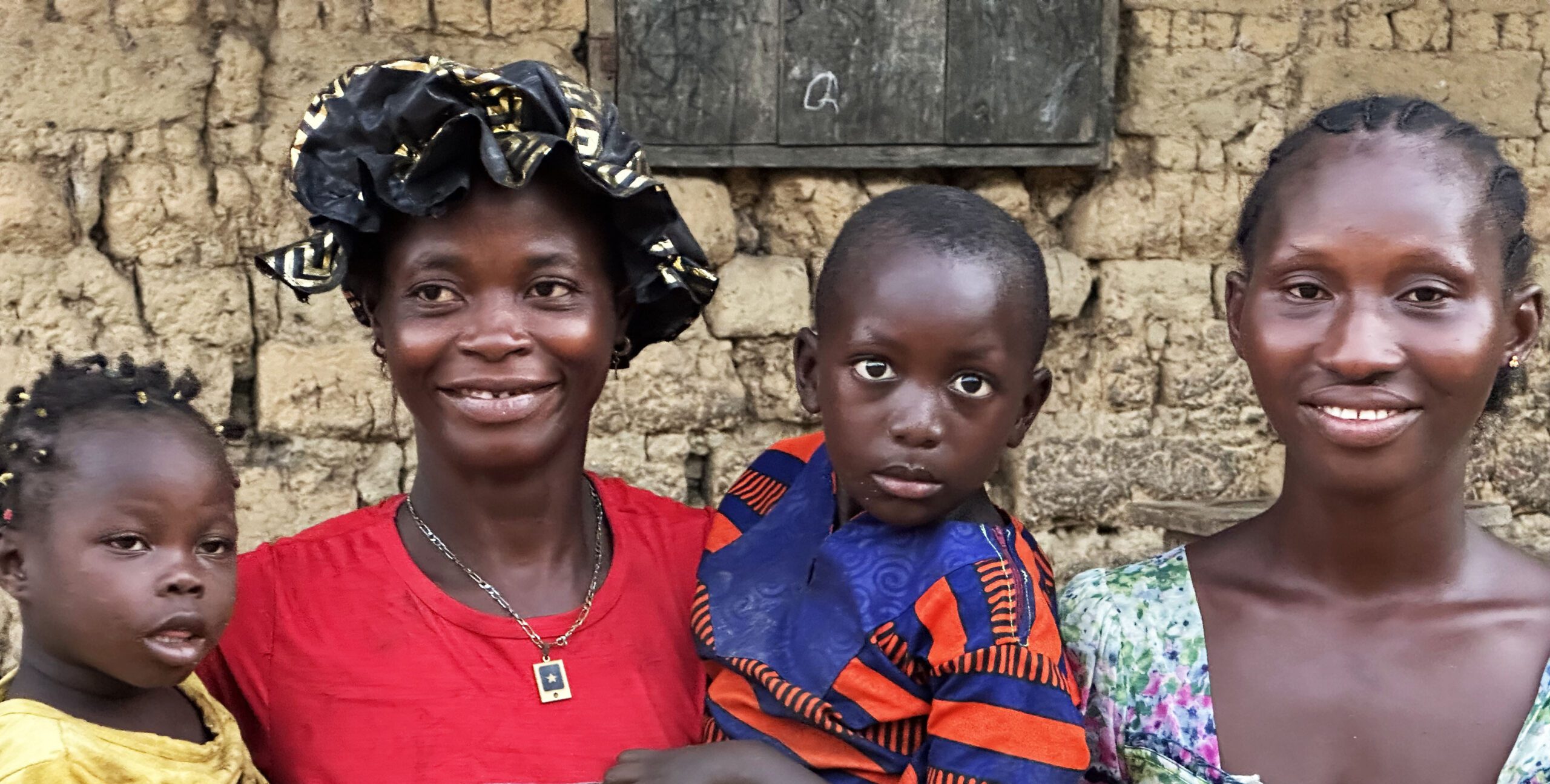
In addition to helping Mariama increase her crop yield, Helen Keller also taught her about the importance of a diverse diet to improve nutrition. Mariama learned how to prepare popular local recipes like rice akara, doughnuts, bread, meat and fish plies with the orange-fleshed sweet potato She has not only started incorporating the orange-fleshed sweet potatoes into her family’s diet but also teaching other women in her community how to prepare similar recipes. This has helped the growth and development of their children and prevented illnesses such as diarrhea that are common during the rainy season.
“The potato is changing the way we eat in our home,” Mariama proudly states. “We are now able to eat better and more nutritious meals, and best of all, my children are becoming healthier and stronger.”
Creating Sustainable Change within Her Community and Beyond
In addition to improving her family’s nutrition, Mariama has also been able to increase her family’s income by selling the excess from her crop at the local market. Much of the money she makes goes into payments of her children’s school fees, buying clothes and other foodstuffs.
More so, Mariama has started mentoring other women in her village by sharing her new-found knowledge and skills on how to grow nutritious crops and improve rural nutrition. She has become a household name in her community, known for her passion for growing orange-fleshed sweet potatoes, and her willingness to help others.

Mariama’s story is just one example of how rural mothers can become agents of change within their communities. With the right support, education, and resources, mothers like Mariama can help their families and communities thrive. To date, Helen Keller has supported more than 800 farmer groups – totaling 24,000 individual farmers – in Sierra Leone.
As Mariama looks to the future, she is confident that orange-fleshed sweet potatoes will continue to transform the lives of many other mothers in her community, and beyond. “If more mothers start growing the potato,” she says confidently, “the lives of children in Sierra Leone will be transformed, one bite at a time.”
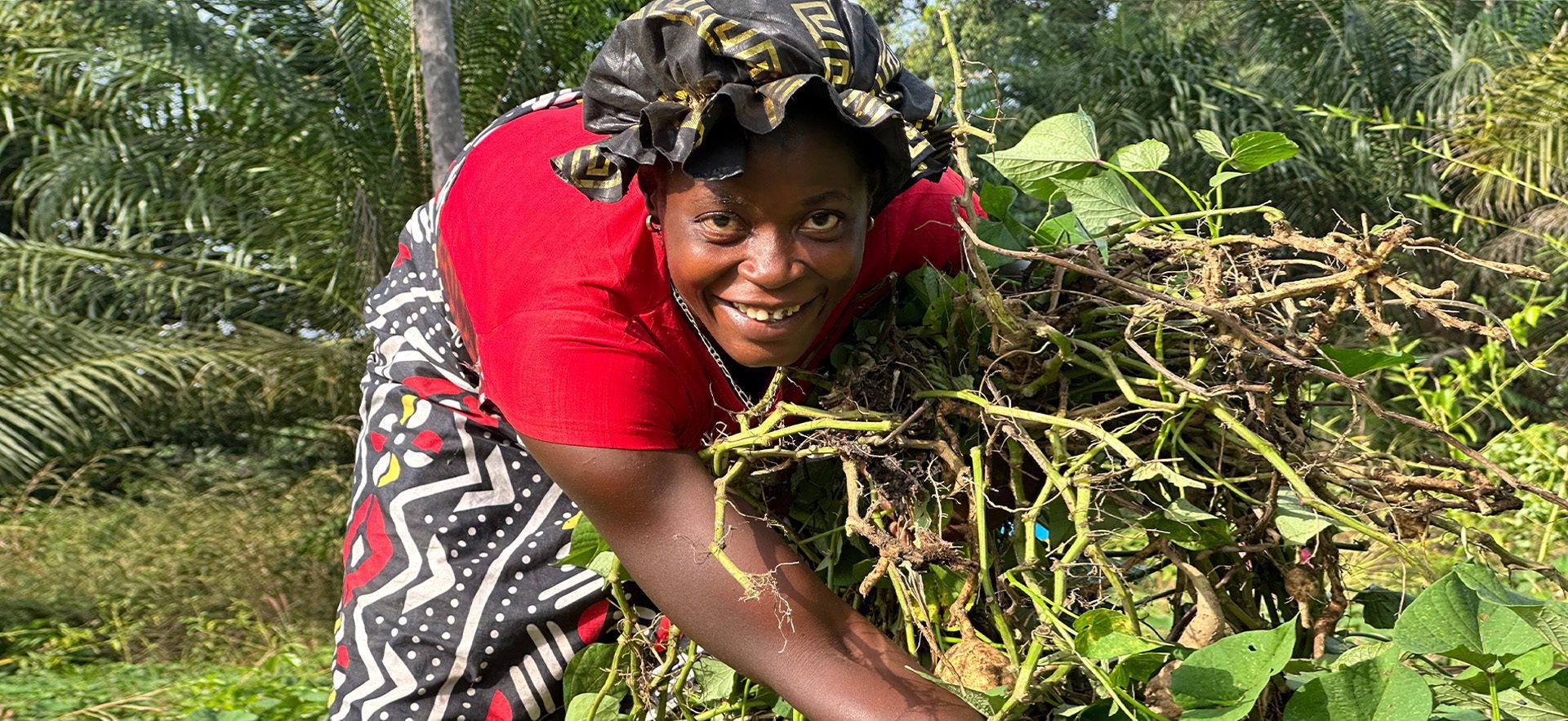
Help families like Mariama’s envision a new future and thrive

